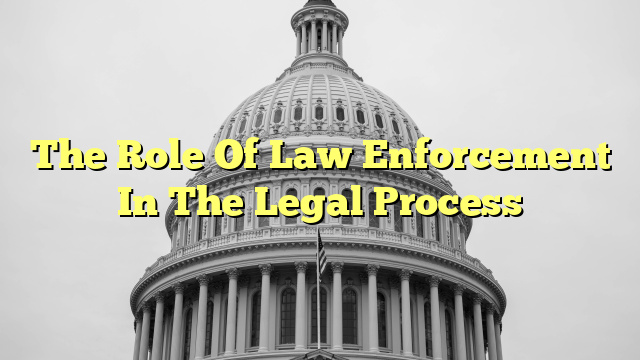Introduction
Law enforcement plays an important role in the legal process, as it is responsible for enforcing laws and ensuring public safety. Police officers are the most visible representatives of law enforcement, but they are not the only ones. The purpose of this article is to explore the various roles of law enforcement in the legal process.
What is the Main Purpose of Law Enforcement?
The primary purpose of law enforcement is to protect the safety and welfare of citizens by detecting, deterring, and responding to crimes. Police officers are responsible for patrolling their assigned area, responding to calls for service, and investigating suspicious activities. In addition to their law enforcement duties, police officers also have a duty to serve the community. This includes providing assistance to victims, educating the public about crime prevention and providing resources for crime victims.
What are the 4 Functions of Law Enforcement?
Law enforcement functions can generally be divided into four categories: crime prevention, crime investigation, law enforcement, and community relations. Crime prevention is the process of preventing crime before it occurs. This includes patrolling assigned areas, responding to calls for service, and investigating suspicious activities. Crime investigation is the process of gathering evidence and information to solve a crime. This includes the interviewing of witnesses and suspects, collection of physical evidence, and analysis of data. Law enforcement is the process of apprehending and prosecuting offenders. This includes making arrests, filing charges, and testifying in court. Finally, community relations is the process of maintaining relationships with the public by providing services, responding to complaints, and promoting public safety.
What are the Three Roles of Law Enforcement?
The three main roles of law enforcement are law enforcement officers, crime scene investigators, and correctional officers. Law enforcement officers are the most visible representatives of law enforcement. They are responsible for patrolling their assigned area, responding to calls for service, and investigating suspicious activities. Crime scene investigators are responsible for collecting and analyzing evidence at a crime scene. They are also responsible for identifying and apprehending suspects. Correctional officers are responsible for the supervision and management of inmates in a correctional facility.
What is a Police Officer in Legal Terms?
A police officer is a person who is employed by a governmental agency to enforce laws, protect property, and keep the peace. Police officers are empowered to use reasonable force and detain individuals who are suspected of committing a crime. They are also responsible for responding to calls for service, investigating suspicious activities, and providing assistance to victims. Police officers are the most visible representatives of law enforcement, and they are responsible for upholding the law and protecting the public.
Conclusion
Law enforcement plays an important role in the legal process by enforcing laws, protecting property, and keeping the peace. The primary role of law enforcement is to protect the safety and welfare of citizens by detecting, deterring, and responding to crimes. In addition, law enforcement functions can generally be divided into four categories: crime prevention, crime investigation, law enforcement, and community relations. Police officers are the most visible representatives of law enforcement, and they are responsible for upholding the law and protecting the public.


Law enforcement plays a vital role in the legal process, ensuring justice for all.
Law enforcement is an integral part of the legal process, ensuring that justice is served in a fair and efficient manner.
Enforcement’s job ends at upholding laws – reform/education should be embraced to embrace their core duties.